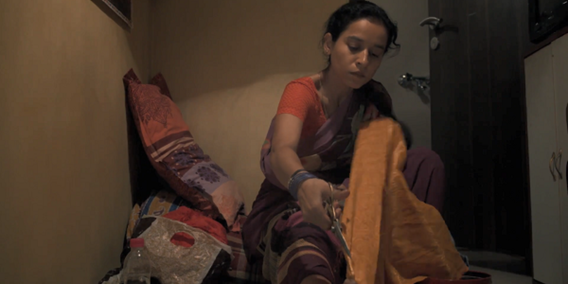The Unspoken Cost of Being a "Good Woman" (And Why I'm Done Paying It)
On my days off, I rest. My mom doesn't. My mother-in-law doesn't. They move through the house like they always have, tending to chores and people and needs that never seem to end. Watching them, something in me tightens. There's gratitude, yes, but also fear. Because I don't want my life to look exactly like theirs. And then the harder question arrives: if almost everyone around me has lived this way, what does it mean that I want something different? What does a life look like when you step off the script?
My mom is a working professional. She's also the first one up every morning. Packing tiffins, preparing breakfast, and making sure everyone else was ready before she rushed to get ready herself. Then she'd leave for work. When she came home in the evenings, no matter how draining her day had been, another shift began. Heating food, setting the table, cleaning up, checking what the house needed, and helping me with schoolwork. On weekends, when my dad and I rested, she was already awake, catching up on everything else. Rest wasn't an option. It never seemed to be.
As an adult, I look back and realize how normal this felt to me. That's just what moms do. Only now do I see the cost. Especially now that I'm expected to do the same. Not because anyone tells me to, but because I've watched it my whole life. The pattern feels inevitable.
Even in sickness, she kept going. I remember her pushing through back pain after her slip disc because "things had to be done." I remember feeling irritated. Why can't she just rest? Why is her health always last?
After I got married, I saw this story again through my mother-in-law. She never went to an office. Her world was home. But the pattern? Hauntingly familiar.
She wakes before everyone, sometimes cooks three different dishes so each person gets what they like. She manages groceries, expenses, laundry, and every small detail that keeps a household running. Most of it goes unnoticed. Not out of cruelty, but because it's simply expected.
Even when the major chores are done, she's still moving. If dinner doesn't need making, there's always something else. And I see what it costs her. Chronic knee pain keeps her from things she loves, like playing garba.
How Do I Make Sense of This?
When I look at these two women, I see how different their lives appear on the surface. One goes to work, one stays home. But their stories? Nearly identical. My mom finds validation in balancing it all. My mother-in-law finds it in keeping everyone comfortable. Underneath, though, they're tired in the same way. Both holding the same belief: their worth is measured by how much they give.
It hurts to witness. Sometimes it makes me angry. Not at them, but at how normalized this is. How many women live like this without question?
Watching them as a millennial daughter, I hold all of it at once. Gratitude for everything they've done and continue to do. Pride in their resilience. But also guilt, because I chose myself in ways they never did. I rest when I need to. They don't. Sometimes that feels selfish, like I'm violating some unspoken agreement about what women owe.
I feel anger too. Anger that they don't put themselves first. Anger at systems that never gave them permission to. Anger that the women I love most internalized the idea that their needs don't matter as much as everyone else's.
And fear. I'm afraid of repeating these patterns without realizing it. Because my generation isn't exempt from these expectations. We've just repackaged them. Now the pressure is to excel at work and at home, to be healthy and social, to show up for everyone and somehow still prioritize ourselves. The bar hasn't lowered. It's multiplied.
What Do I See in Therapy?
These patterns show up constantly in my work. Women arrive exhausted, convinced that overextending is just how life works. Homemakers feel invisible because their labor isn't paid. Working women are stretched impossibly thin, trying to succeed professionally while meeting every traditional expectation at-home. All of them end up anxious, burnt out, and wondering if they'll ever be enough.
These patterns didn't start with us. They've been handed down, generation after generation. And when we try to break them, guilt follows. Not because we're doing something wrong, but because we're doing something different from our mothers. That alone feels like betrayal.
I'm learning, slowly, that worth isn't something I earn through productivity or perfection. It also comes from honoring what I love, from treating my happiness as equally important as my responsibilities. Worth isn't conditional. It just is. Regardless of what I accomplish or fail to accomplish, I deserve respect. I deserve dignity.
As I get older, I'm paying closer attention to my choices. I check in with myself more often: Am I doing this because it's expected of me as a woman, or because I actually want to? I'm learning to choose differently. Not perfectly. Not dramatically. Just differently.
I listen to myself more now. I rest without justifying it. I pause before saying yes. I let my happiness exist in the same space as everyone else's, not buried beneath it.
And still, there are moments when I do things simply because they make my family happy. Not because I prefer it, but because it doesn't violate my values or make me uncomfortable. My family matters. Sometimes love shows up in small accommodations.
What I'm building is a rhythm that feels kinder. A balance that's honest, sustainable, mine. Not inherited. Not prescribed. Mine.
What Do I Want to Carry Forward?
From my mom and my mother-in-law, I want their resilience. Their capacity for love. Their hope. But I don't want their silent endurance. I don't want to inherit the belief that my worth depends on how much I sacrifice.
I want a life where love doesn't require self-erasure. Where responsibility doesn't mean neglecting my needs. Where rest isn't a luxury I have to earn, but a basic part of being human.
That's what I'm working toward. Not a rejection of everything they taught me, but an evolution of it. Taking what serves me, releasing what doesn't. Building something that honors them and honors me, too.
If these patterns feel familiar, you're not alone.
Therapy can help you untangle emotional inheritance, redefine worth, and build a life that feels like your own.
Book a Therapy Session







